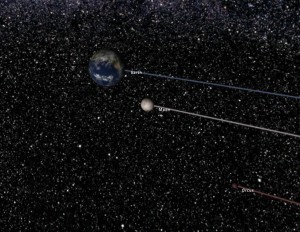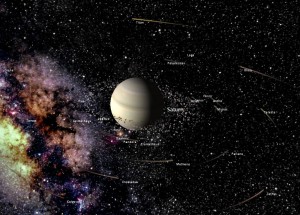Science in games
During my ongoing literature review I often discover interesting facts about things I’ve never thought about. Sometimes I can connect these facts with my own observations: The result is mostly a completely new idea why things are as they are. Maybe these ideas are new to you, too. Therefore I’ll share my new science based knowledge with you!
This week: This time, I’ll present an interesting method of experiencing science: playing it! I’ll present two simulations that allow users to experience and discover science from a very interesting point of view.
Science as a main topic in computer games isn’t very common. Often it’s science that evokes some terrible problems[1]. Typically, after something scientific went terrible wrong, the player is in charge to fix everything to save the world. But science doesn’t always cause problems. Sometimes science helps the player to research new items that are useful to survive the game. In this scenario, science has a minor role and functions as some kind of ressource[2]. Finally, there’re also games that use science as a key element to win the game: Civilization 5 can be won through a „science victory“[3]. However, players of Civilization don’t actively perform the research. They just choose the next research project that than is completed within a certain amount of turns.
But there’re also some games that do have science as their main topic. Universe Sandbox[4] is simulating gravitational forces of the universe. The player can add new planets to our solar system or change the properties of the sun. The game afterwards is simulating the gravity among the celestial bodies. By playing the game users can experience how the gravity of planets is effecting the path of asteriods, how a Earth centered solar system would work out or what happens if the sun suddenly has a weight of only 1kg. Additionally, it’s possible to change the simulation rate, making things faster and easier observable.
Some days ago, I’ve discovered the Take On Mars[5] project. This simulation game puts the player into the position of a rover operator. According to the short description of the game, players can experience science missions on Mars and discover the planet’s secrets using the tools of the rovers or landers. I wasn’t able to experience the game myself but it sounds very interesting to navigate a roboter on the Mars.
Naturally, both simulations aren’t completely accurate, but users are allowed to experience scientific facts themselves. Information about the facts presented in these two games are typically covered in the TV. Showing and explaining a simulation how an asteriod behaves is very informative. On the other hand, it’s only passive: interested people can’t manipulate the simulation to see what will happen.
A gamified simulation of science however allows players to actively manipulate things. They can do observations on their own and start learning how things might work. Users are more involved in the whole learning process and might have an increased learning progress compared to a passive documentation. Furthermore, if users get interested in the particular science, they might want to know more about it. Finally, this could lead to an increased interest in science and the recent results.


Pingback: Finding of the week #22 | Blog Learning-by-Gaming